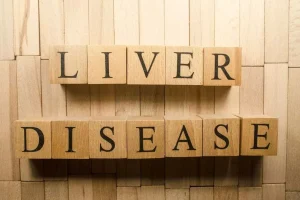
Alcoholism is a chronic relapsing disease and, thus, it is not uncommon for many dependent individuals to attempt abstinence on numerous occasions, only to find themselves progressing to unhealthy excessive drinking once a “slip” (relapse) occurs. When dependent individuals completely stop or significantly reduce their alcohol drinking, a characteristic withdrawal syndrome ensues. In addition to these physiologic alcohol brain fog signs of withdrawal, a constellation of symptoms contributing to psychologic discomfort and negative affect constitutes a prominent component of the withdrawal syndrome. Withdrawal symptoms that fall within the domain of psychologic discomfort and negative affect (mood) include sleep disturbances, anxiety and irritability, increased stress reactivity, and a general state of anhedonia/dysphoria.
Can alcohol cause permanent cognitive impairment?

I was doing a slightly different job and felt unsure about the new system implemented. Without colleagues sitting beside me I couldn’t easily ask someone for help, so I lost confidence. I’d do video calls with my camera off, then collapse on the sofa afterwards feeling terrible. I’d lost all the sharpness that I’d prided myself on and I had constant “brain fog”, struggling to focus. By binding to and activating the brain’s opioid receptors, they send dopamine – an estimated two to 10 times the “normal” amount – flooding into the brain.
Author: Find Recovery Editorial Team
- Abi started radiotherapy in July and will do a round of chemotherapy later this year.
- Alcohol withdrawal that progresses to delirium tremens causes intense hallucinations, as well as severe confusion, disorientation, and agitation.
- It may also reduce the activity of glutamate, an amino acid that has been shown to play a role in withdrawal.
- A rare but very serious syndrome called delirium tremens can occur during alcohol withdrawal.
- In fact, you may find that instead of floating on a pink cloud, you feel like you are trying to see through one.
The authors are grateful to the Cyceron MRI staff members for their help with patients and imaging examination acquisition, and Coralie Lannuzel, Stéphane Rehel, Ludivine Ritz and Hélène Beaunieux for their help at various stages of the study. Ultimately, the best way to prevent alcohol-related neurologic disease is to not drink alcohol. Avoiding alcohol is the best way to treat these conditions and relieve symptoms. Some tests can be performed by a doctor to rule out other causes of neurologic symptoms.

Timeline of Alcohol Withdrawal Symptoms
A consistent flow of nutrients will keep your brain sharp throughout the day. Here are 5 simple and practical ways to get your brain back on track during recovery. Load up on vitamins, nutrients, and minerals by consuming a balanced diet. Ditch junk foods and consume more lean proteins, whole grains, and less sugary vegetables and fruits.
- The maladaptive nature of these changes induced by chronic alcohol exposure is revealed when alcohol is eliminated from the brain during withdrawal.
- Meanwhile, structured aftercare and relapse prevention programs offer continuous support as you transition into sobriety.
- Our bodies have the incredible capacity to heal, and with time sobriety can open the door to a happier and healthier life.

- This deterioration not only aggravates the alcohol-induced brain fog but also poses a risk to long-term cognitive health, highlighting the profound impact of alcohol on our neurological well-being and underscoring the potential dangers of addiction.
- As you continue to commit to long-term recovery, support group meetings like Alcoholics Anonymous (AA) or online support communities might be helpful.
- Medical supervision, behavioral health treatment, and mutual-aid groups can help you through alcohol withdrawal and stay stopped.
- It also covers some of the different treatment options that are available.
- Symptoms usually begin within 6–12 hours of the last drink and can last for a few days.

